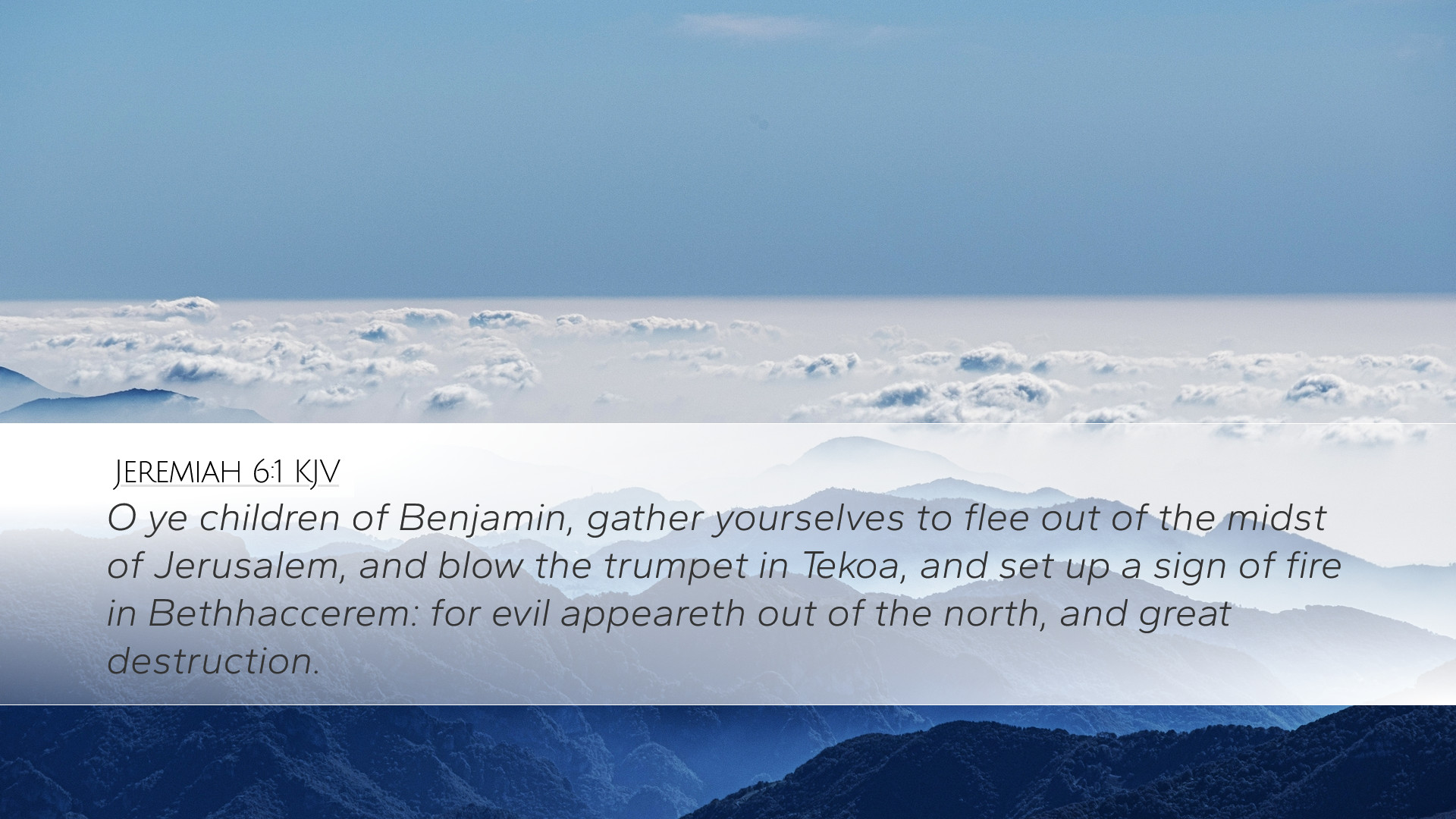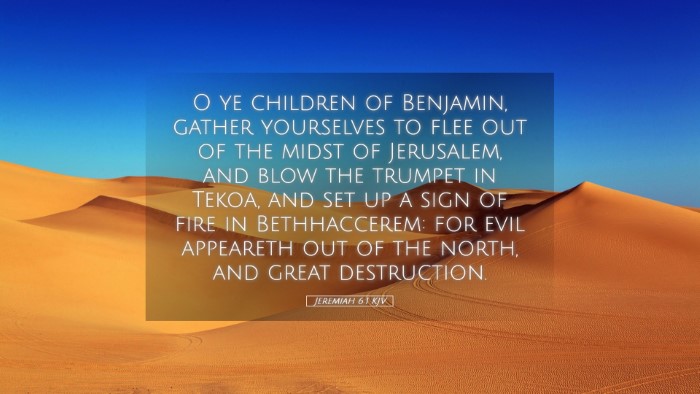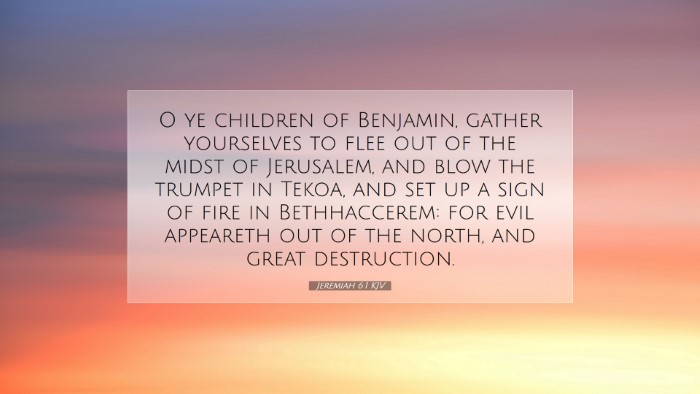Commentary on Jeremiah 6:1
Verse: "O ye children of Benjamin, gather yourselves to flee out of the midst of Jerusalem, and blow the trumpet in Tekoah, and set up a sign of fire in Beth-haccerem: for evil appeareth out of the north, and great destruction."
Introduction
This verse, situated within the prophecies of Jeremiah, encapsulates both a call to action and a solemn warning to the people of Judah, particularly the children of Benjamin. It serves to remind readers of the impending judgment that is approaching Jerusalem from the north.
Contextual Analysis
The context of Jeremiah 6 is foundational for interpreting this verse. The prophet Jeremiah delivers messages of warning during a tumultuous time for Judah, as they face both external threats and internal corruption. The prophecy in this chapter stresses the urgency of the situation, calling upon the inhabitants to flee from imminent danger.
Public Domain Commentary Insights
-
Matthew Henry's Commentary
Matthew Henry notes that this verse addresses the "children of Benjamin," highlighting a specific demographic within Jerusalem. He emphasizes that the call to gather and flee signifies a critical recognition of the danger present among them. The urgency is palpable; it is a summons to action amidst peril.
Henry remarks on the symbolic use of Tekoah and Beth-haccerem, which represent locations that provide strategic warning signals. He explains that the blowing of the trumpet is a traditional call to arms, indicating that the threat is both imminent and dire.
-
Albert Barnes' Notes
Albert Barnes elaborates on the geographical significance of Tekoah, a village southeast of Bethlehem, and its role in alerting the people. Barnes highlights the “evil” coming from the north, which most commentaries recognize as a reference to the Babylonian threat.
He also points out that the call to flee is not merely a physical escape but also an invitation for the people to repent and turn back to God, which echoes throughout Jeremiah's overall prophetic message.
-
Adam Clarke's Commentary
Adam Clarke provides insight into the symbols used in the verse. He interprets the trumpet as a message of alarm and urgency, while the fire is indicative of destruction. Clarke helps the reader understand that these signals were commonplace in ancient warfare, which adds historical context to Jeremiah’s prophetic utterance.
Clarke emphasizes the notion of 'great destruction', referring not only to the physical ramifications of warfare but also the spiritual desolation that accompanies such judgments when a people turn from God.
Theological Implications
The call to “flee” can be viewed as a metaphor for spiritual preparedness. The understanding that destruction approaches reminds us of the need for vigilance in our spiritual lives. Just as Jeremiah warned his contemporaries, pastors and theologians today find in this verse a call to counsel their congregations to remain steadfast in faith amidst societal evils.
Application for Believers
- Urgency of Response: Just as the children of Benjamin were called to respond immediately to the trumpet's sound, believers today are reminded of the urgency in addressing sin and societal decay.
- Awareness of Judgment: The awareness of God’s judgment, as depicted in this verse, underlines the importance of acknowledging one’s standing before God, which calls for repentance and a return to righteous living.
- Spiritual Readiness: The imagery of fire and destruction serves as a powerful reminder to stay spiritually alert and equipped to face the challenges that come, reminiscent of Ephesians 6’s exhortation to put on the whole armor of God.
Conclusion
Jeremiah 6:1 serves as a rich tapestry woven with the threads of warning, action, and hope. By examining insights from venerable commentaries, we can appreciate the multifaceted messages contained within this verse. The call to flee not only foreshadows the calamity to come but also presents an opportunity for reflection and a return to faithfulness. Ultimately, it encourages a proactive posture in the face of impending adversity, underscoring God's ongoing concern for His people.


